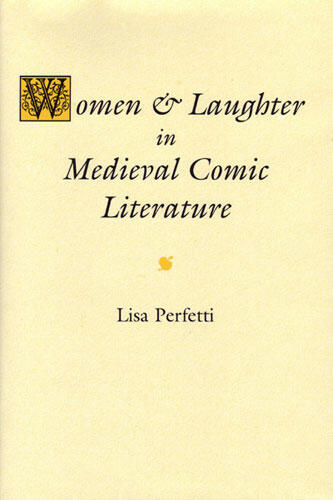Women and Laughter in Medieval Comic Literature
Portrays a range of medieval heroines to ascertain how humor might have been used and enjoyed by medieval women
Description
Exploring literary representations of women's laughter from the thirteenth through the sixteenth centuries, this volume offers an intriguing look into a culture of women's laughter, illustrating the many contexts that shaped the way women told jokes, as well as the ways their joking reflected their limited position in a society dominated by men. The book also considers the uses male authors made of the laughter of their fictional creations and the pleasures offered to both male and female audiences.
This study is the first to investigate women's laughter as a particular kind of "talking back" to medieval discourse on women, the subject of recent feminist medievalist studies. Female characters openly embrace women's laughter, associated with the body and castigated for its unruliness in conduct literature. Acknowledging that comic works were grounded in antifeminist traditions and that their female characters were in fact targets of laughter for male authors, this study argues that female characters who laugh and tell jokes also offer traces of how women might have used their laughter to respond to negative pronouncements about women in medieval culture. Both laughable and laughing, the female protagonists studied in this book will engage modern readers with their witty, sometimes bawdy jokes, allowing us to imagine the pleasures that medieval comic literature, so often labeled misogynous, offered to women as well as to men.
Lisa Perfetti is Assistant Professor of French, Muhlenberg College.
Lisa Perfetti is Assistant Professor of French, Muhlenberg College.
Reviews
"Women and Laughter in Medieval Comic Literature provides a fascinating and timely study of medieval attitudes toward women's laughter in religious and didactic literature as well as philosophical and medical treatises, while foregrounding the unruly laughing heroines in comic texts. Perfetti's careful readings of English, French, Italian, German, and Arabic texts help us to imagine women's laughter in comic texts as a possible response to varied medieval debates about gendered identities."
- E. Jane Burns, University of North Carolina
—E. Jane Burns, University of North Carolina
"Perfetti's critical approach is informed by common sense and feminist criticism, carefully eschewing the more traditional/masculinist treatments of her chosen works and subject...her textual analysis is surefooted and engaging, and this fresh look at women's laughter is a useful contribution to feminist and gender studies of the Middle Ages."
- Caroline Jewers, University of Kansas
—Caroline Jewers, Speculum

